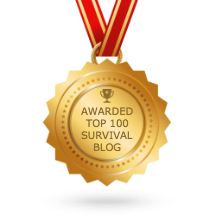Set the stage saying that there would be no air conditioning, no video games, no TV. Let the children come up with ideas to keep cool and entertain themselves. Ask what they think they might need at night if there are no lights in the house (flashlights and extra batteries?). Turn the conversation to food and how it could be prepared. Is the only can opener in the house an electric one? Is the stove electric? How do you keep the food in the freezer from melting?
Probably at the point of mentioning no TV, you will get the children involved. Ask how long their handheld game player can run on its batteries. You get the idea.
Everyone should begin to see the things that would be fine and things that would be more difficult. Ask someone to make a list of everything that would be helpful to have in an emergency kit for surviving two days with no electricity. Let everyone contribute ideas. Then take action to secure the emergency items that make the most sense, and let the kids know where they are. They will see that they have helped think through the problems.
The next time the family is ready to play "what if," the scenario could be the same situation but in the wintertime (if you live in a cold climate). Disaster situations discussed for the "game" could escalate to more serious situations as all the members in the family become more comfortable. Of course, parents should use their best judgment about whether their children would find this fun or whether a child might have a "worry" personality and continue to fret after the game.
Just thinking through possible disasters makes everyone (including you) less likely to panic should a serious emergency occur. You have already imagined what you would do. As a family, you will have discussed what the safest procedures would be, what emergency supplies you would take, etc. The lists and ideas for various survival situations should spur you to take action and prepare emergency kits (yes, the children should each have their own custom bug-out kit).
A great place to prepare so you can lead your family in a discussion is the U.S. government emergency preparedness site, http://www.Ready.gov. You'll find lots of checklists and tips. Also on that website, you can find a drop-down menu that takes you to the disaster preparedness site for your own state. Learn the most likely emergencies for your area.
Carla J. Hall is the author of the ebook novel "Obliterated - Would You Know How to Survive?" The suspenseful adventure story is filled with real-life survival tips. It is available from Amazon. Learn more at: http://www.c-j-hall.com
Article Source: http://EzineArticles.com/6658491
The Prepper's Pocket Guide: 101 Easy Things You Can Do to Ready Your Home for a Disaster
120 Serving Breakfast Only @ $198 (120 Servings breakfast assortment. No entrees) - Order Now!




0 comments:
Post a Comment